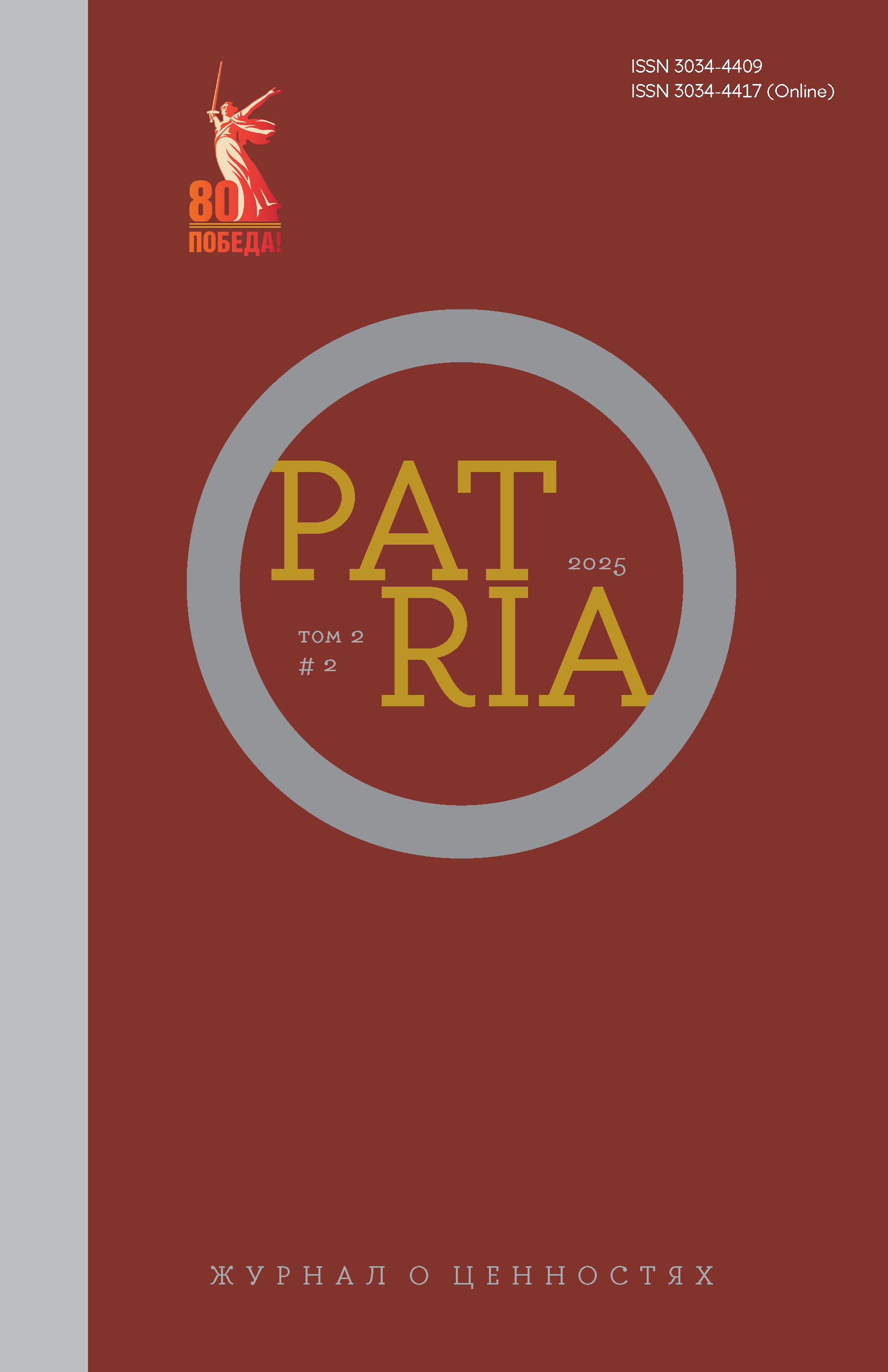The Victory as a Value
Abstract
The article is devoted to the Victory as a value. It is argued that, since value is nothing more than a preference given to some things over others, the acquisition of the character of value by any phenomenon presupposes that it has withstood a certain cultural competition. The value of victory is paradoxical: by demanding the end of the confrontation, it thus negates the structure of value with its internal tension. A complete victory would mean the cessation of the confrontation with the further impossibility of forming new values, since the counterbalance of the value, the suppressed (anti-value) essence must either completely disappear, as a result of which the value would lose its significance, or enter into some kind of partnership with the value, and then the value would lose its content. Therefore, it is likely that any victory is only temporary and relative, which is reflected by all values in their current, purely intermediate and imperfect state. The need for coexistence against the background of the phenomenon of values automatically leads to permanent confrontation, which only changes its forms and intensity. Since any consensus is achieved only on the basis of common values that have already been found, the search for a topos takes place only through disagreements that are resolved by the victory of some ideas over others. The Great Victory of 1945 is the historical imprint of the next round of the axiological confrontation of the mid-twentieth century. The positions of the individualist worldview were somewhat shaken by the impressive demonstration of the power of collectivism. In turn, the apparent softening of strictly atheistic attitudes, replaced by moderate mutual loyalty between the state and the church, could be seen as a relative victory for Christian ideals. The short-lived and fragile synthesis of these principles, soon subjected to new attacks, nevertheless became the basis of the value self-determination of Russian culture, which has not yet found a worthy replacement.
Downloads
References
Alexandrov G. (1945) “Comrade Erenburg Simplifies”, Pravda, April 14, p. 2.
“Convention on the Laws and Customs of Land Warfare, October 5 (18), 1907” (2007), Current International Law, vol. 2, Moscow: Yurajt: Mezhdunarodnye otnosheniya.
“Decree of the II All-Russian Congress of Soviets about the Peace” (1957), Decrees of the Soviet Government, vol. 1, Moscow: Gos. izd-vo polit. lit.
“Decree of the President of the Russian Federation No. 809 dated 11/09/2022 ‘On Approval of the Foundations of State Policy for the Preservation and Strengthening of Traditional Russian Spiritual and Moral Values’” (2022), Collection of Legislation of the Russian Federation, no. 46, art. 7977.
Duguit L. (1919) Les transformations generales du droit prive depuis le Code Napoleon, Moscow: State Publishing House.
Erenburg I. G. “Enough!”, Erenburg I. G. Collected Works, in 8 vols, vol. 5, Moscow: Hudozhestvennaya literatura, pp. 659–665.
Hegel G. V. F. (2000) Phänomenologie des Geistes, Moscow: Nauka.
Hobbes T. (1991) “Leviathan, or the Matter, Forme, and Power of a Commonwealth, Ecclesiastical and Civil”, Hobbes T. Essays, in 2 vols, vol. 2, Moscow: Mysl, pp. 3–546.
Inber V. M. (1943) “To the Red Army”, Inber V. M. About Leningrad. A Poem and Poems, Leningrad: Goslitizdat, pp. 73–74.
Kopaneva V. A. (2024) The Phenomenon of Recognition: A Socio-Philosophical Approach (PhD Thesis), Volgograd: Volgograd State University.
Malinova I. P. (1995) Philosophy of Law (from Metaphysics to Hermeneutics), Ekaterinburg: Publishing House of the Ural State Law Academy.
Robespierre M. (1965) Selected Works, vol. III, Moscow: Nauka.
Tolstoy L. N. (1984) “About Life”, Tolstoy L. N. Collected Works, in 22 vols, vol. 17, Moscow: Hudozhestvennaya literatura, pp. 7–135.
Vakhitov R. R. (2024) “Traditionalism as a Reaction to Revolution: The Origins of the Modern Ideology of ‘Traditional Values’ and Eurasianism of the 1920s”, Patria, vol. 1, no. 4, pp. 29–43.
Varkhotov T. A. (2024) “The Unconventional Nature of Value”, Patria, vol. 1, no. 1, pp. 9–29.
Copyright (c) 2025 HSE University

This work is licensed under a Creative Commons Attribution 4.0 International License.




